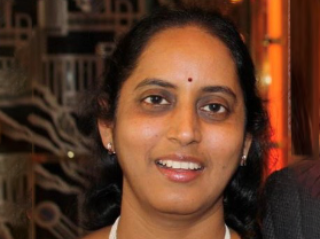LIFE STORIES

Kumari V, USA
Resilience and Hope
Kumari’s story is of a woman who was diagnosed breast cancer at the age of 47 but noticed bumps at 31 and how she navigated through the treatment and emerged as a survivor.
At the age of 31, I noticed little bumps under my arm. I was advised to get a mammogram since I told my doctor my paternal grandparents died of unknown cancer when I was young. Bilateral solid nodules were identified in my breast after getting ultrasound guided biopsy. My doctor informed me that these are considered benign tumors and advised me to get routine annual mammogram screening even though I am not 40 yet. It is always difficult for radiologists interpreting my mammogram results because of dense breast tissue.
Every year I waited anxiously for mammogram results praying for no breast cancer. My worst fears came true at the age of 47, after routine annual mammogram, I was told my mammogram showed calcification that required further examination. My heart broke when I heard the word cancer from my doctor after the pathology report of the breast biopsy showed invasive DCIS breast cancer. It was diagnosed as grade 3, ER+PR+HER2+ breast cancer and the cancer cells appeared to be aggressive.
As the supervisor of a molecular diagnostics lab that regularly conducts cancer diagnostic tests, I am aware of the cancer tests and treatment that cancer patients go through. Still, it was hard for me to digest the news. I & my husband made the choice of getting partial mastectomy after speaking with a breast cancer surgeon. As a result of invasive tumor and Her2 positivity, I was enrolled in Herceptin trial (at that time it was not recommended for DCIS invasive patients) but was assigned to the placebo group.
On the advice of my oncologist, I took radiation treatment for six weeks to reduce the chance of relapsing. The following five years I took Tamoxifen tablets as a treatment for DCIS. I continued to have mammograms annually to check for the recurrence of the tumor. By God’s grace, everything appears to be going well. I am celebrating tenth anniversary this year following mastectomy and radiation therapy.
Receiving a cancer diagnosis is not a death sentence; instead, one must be resilient and should not be afraid to ask for support from other survivors and professionals. There are many different breast cancer treatments available now, and there is still hope. Prevention by following good diet and exercise & getting annual mammograms for early diagnosis is the key for survival.
